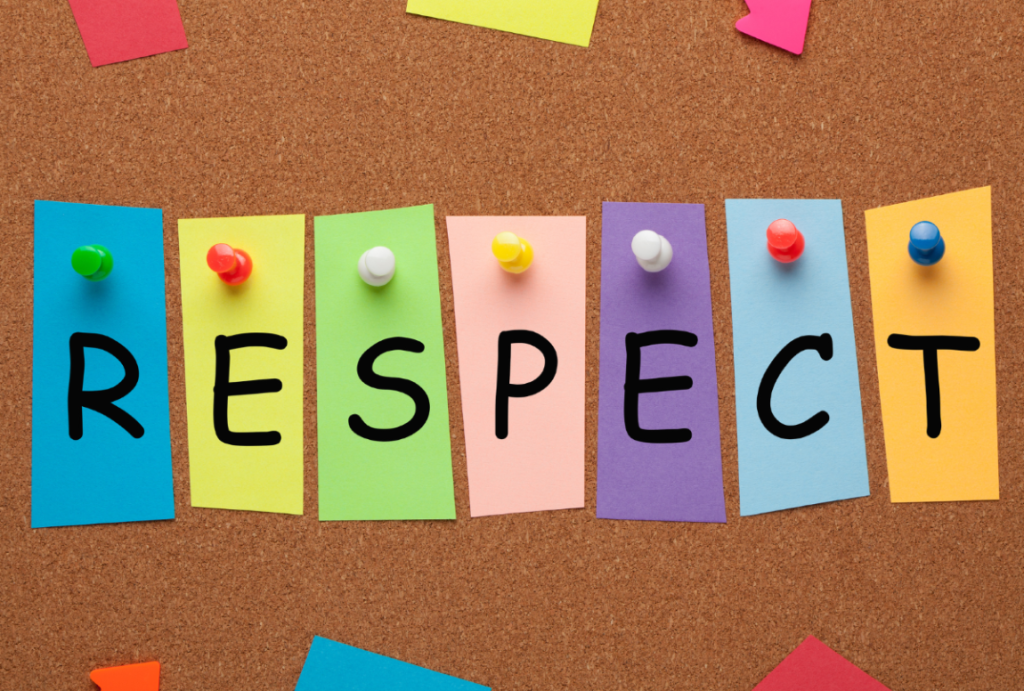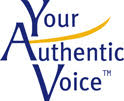
Mutual: a feeling or action experienced or done by each of two or more parties toward the other or others.
Respect: a feeling of deep admiration for someone or something elicited by their abilities, qualities, or achievements; due regard for the feelings, wishes, rights, or traditions of others.
I’m betting few people would disagree that “mutual respect” is a key ingredient of fulfilling relationships. Among many other positive outcomes, engaging others in the spirit of mutual respect provides emotional safety. You and I can be safe to share who we are without fear of rejection, betrayal, humiliation, and all those other difficult feelings. Instead, we can experience acceptance, understanding, and maybe even belonging. Wow.
So, the question is, what does mutual respect actually look and feel like? This is a big question, so this is a longer article than I normally write. I hope you find it as helpful as I found writing it!
Like all humans, I’ve failed and succeeded numerous times giving and receiving mutual respect, both in my personal and professional lives. We are all works in progress. We all have blind spots. Fortunately, we are able to learn and grow. And, I must say, I’ve taken that on with a vengeance. I’ve spent decades participating in personal, professional, and spiritual growth programs. That’s no doubt how I ended up being a coach.
As a coach, I am ethically bound to respect my clients’ rights to determine their own path by avoiding giving advice, mentoring, and therapizing. That can be tough, I will tell you! And, it’s fantastic training for all of life.
What I’ve learned is there are few things that can dismantle a relationship and remove goodwill as quickly as a disregard for the inherent rights of each person to determine what is best for them without harm to another, whether that respect was denied consciously or unconsciously.
The good news is we get to choose to create mutual respect. We get to ask ourselves, am I willing to unlearn the psychological conditioning I’ve gained that, through no fault of my own can result in disrespect, and learn a new way?
To say yes to that question, we have to see the value. Why in the world would I learn how to listen, withhold my judgment or opinions, respect boundaries, and ask for what I want and need if there’s no good purpose in it?
A year or so ago, I was gifted by my dear sister and brother-in-law with the opportunity to become certified in the Leadership Circle Profile 360 Assessment. I had heard about this from a colleague and was thrilled to participate! Of course, to get certified I had to go through it. What I learned changed my life.
I realized I had been carrying a “complying” belief that if I don’t self-sacrifice, I’m selfish. This lifelong belief had led to self-sabotage. I won’t go into all the ways it permeated my life. Let’s just say, everything. I realized the opposite is true. Choosing self-love and self-respect leads to self-empowerment and success, which of course enables me to serve more powerfully and create relationships based on mutual respect. That mutual respect has allowed me to experience more fulfilling personal and professional relationships in which we both feel heard, seen, and valued. This enables me to serve more powerfully and with deeper integrity.
So, back to that question, what does mutual respect actually look and feel like? My two cents:
- Believe people the first time. This is a quote from the late Maya Angelou. I have ignored this at times by continuing to pursue business or friendship relationships when it was clear from their lack of response they weren’t interested. Interest looks like investment — a return call, email or text; an inquiry into how you’re doing; making time to connect; being on time to meetings or events. We know what interest looks and feels like. I’ve adopted the idea, it’s a hell yes, or a hell no. If you say yes, okay! If you say no, okay! That makes things much simpler and helps me stay out of overthinking and be clear in my intentions and actions.
- Ask permission. This can sound like, may I share my thoughts with you about xyz? Would you be interested in receiving this information? Would you like to set up a follow-up meeting? Whatever the answer is, respect it. I know your email and text accounts are filled to the brim with pitches for products or services or the seventh email from someone who is now guilting you for not responding. People invite you to be a friend or to link up on social media only to pitch you the minute you accept. You end up on email lists you never signed up for. The rationale for that has been, they can always unsubscribe! Rubbish. It’s an intrusion. I could spend hours a week unsubscribing from unwanted email lists. Ask permission, then respect the answer.
- Give permission. If you want to uncover your blind spots or get support to make a change, give trusted colleagues, friends, or family members the permission to gently remind you of your commitment when you falter, and when they do, accept it gratefully. I’ve done this a number of times. Becoming aware of entrenched habits takes time and effort.
- Avoid labels. We’re all multi-faceted, complex beings. Labeling someone from our own limited exposure or experience of that person is our attempt to create less chaos and more safety in our own lives. To gain some certainty, or be right. It does nothing for the relationship. When you find yourself tempted to label someone in any way, stop. Realize you really don’t have a clue about what’s driving that person’s behavior or ideas unless they tell you, and even then, who among us totally understands ourselves? If their ideas or beliefs are distasteful to you, own it. That’s you, not them. Love starts by accepting people as they are. You can always choose what level of relationship to have if any at all. If the relationship doesn’t meet our needs, we can attempt to change it, accept it as it is, or leave it.
- Value kindness. I’ve experienced kindness from many people in my life who have been incredibly gentle with me while maintaining a personal or professional relationship. I’ve endeavored to do the same. Being kind will always make things better. This doesn’t mean being a doormat or allowing inappropriate behavior. I recently had to assert my power with a roofing company. I did so, not by speaking harshly or blaming, but by taking the steps I could take to rectify the situation, which were not comfortable. Sometimes the solution isn’t ideal. In the end, I was able to get things handled without creating an enemy. I know when we bring blame, anger, or harmful actions into a relationship, it will impact it negatively, at least until reparations can be made.
The most important part of mutual respect is the mutual part. If I value you, I’m going to listen to what’s important to you. I’m going to respect your boundaries. I’m going to avoid giving advice unless it’s asked for, even if I think it’s the best thing you could ever do! And when I mess up, I’m going to ask for your forgiveness. When there is mutual respect, that’s easier. I’m also going to ask for the same consideration from you. I’ve found when mutual respect becomes an active value in your life, life is more peaceful and wonderful!
Whatever form your relationship takes, be it boss/employee, spouse, sister, brother, mom, dad, friend, or colleague, the key is mutual respect. It’s not only about treating others as you would want to be treated, it’s about treating others as they would want to be treated! If I can support you, I’d love to!

Leave A Comment